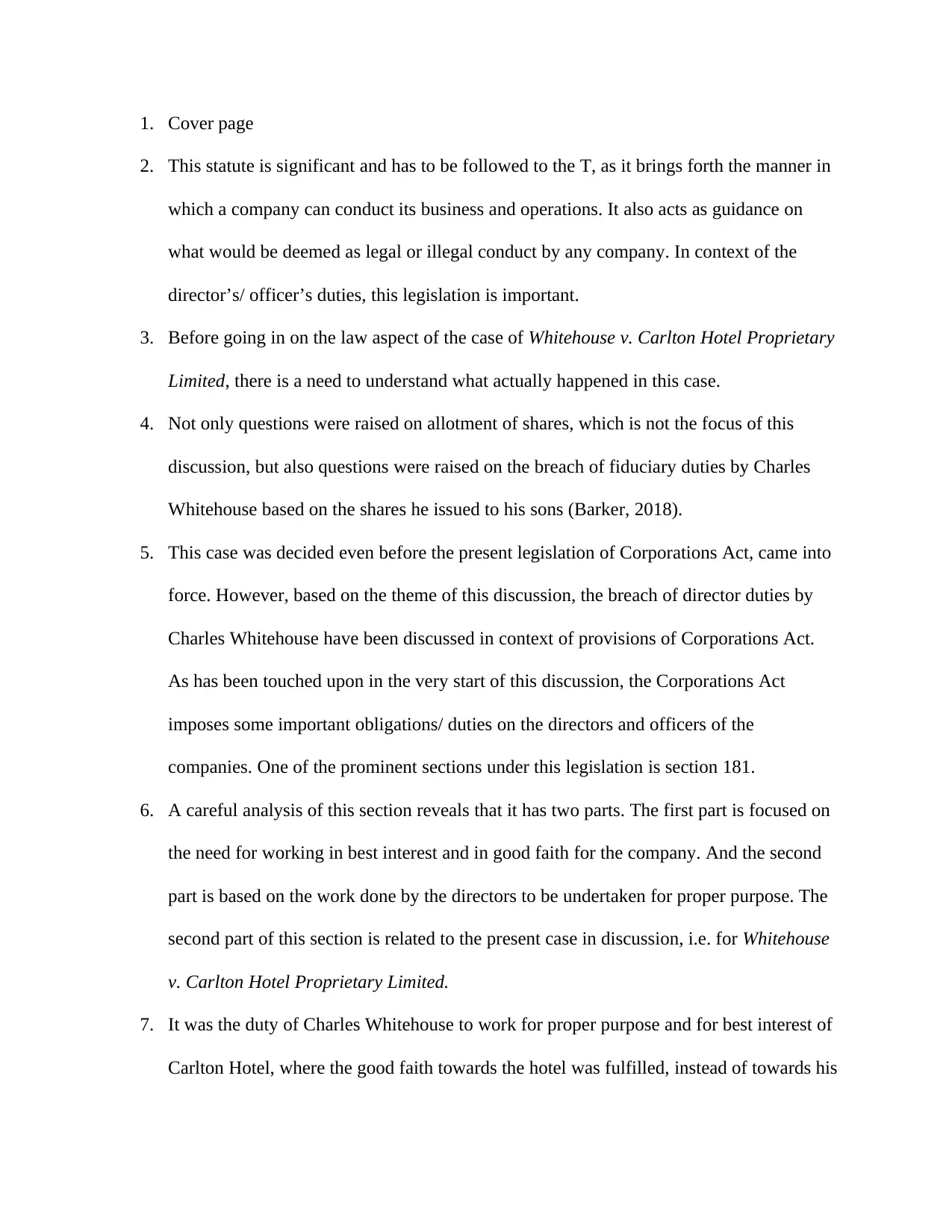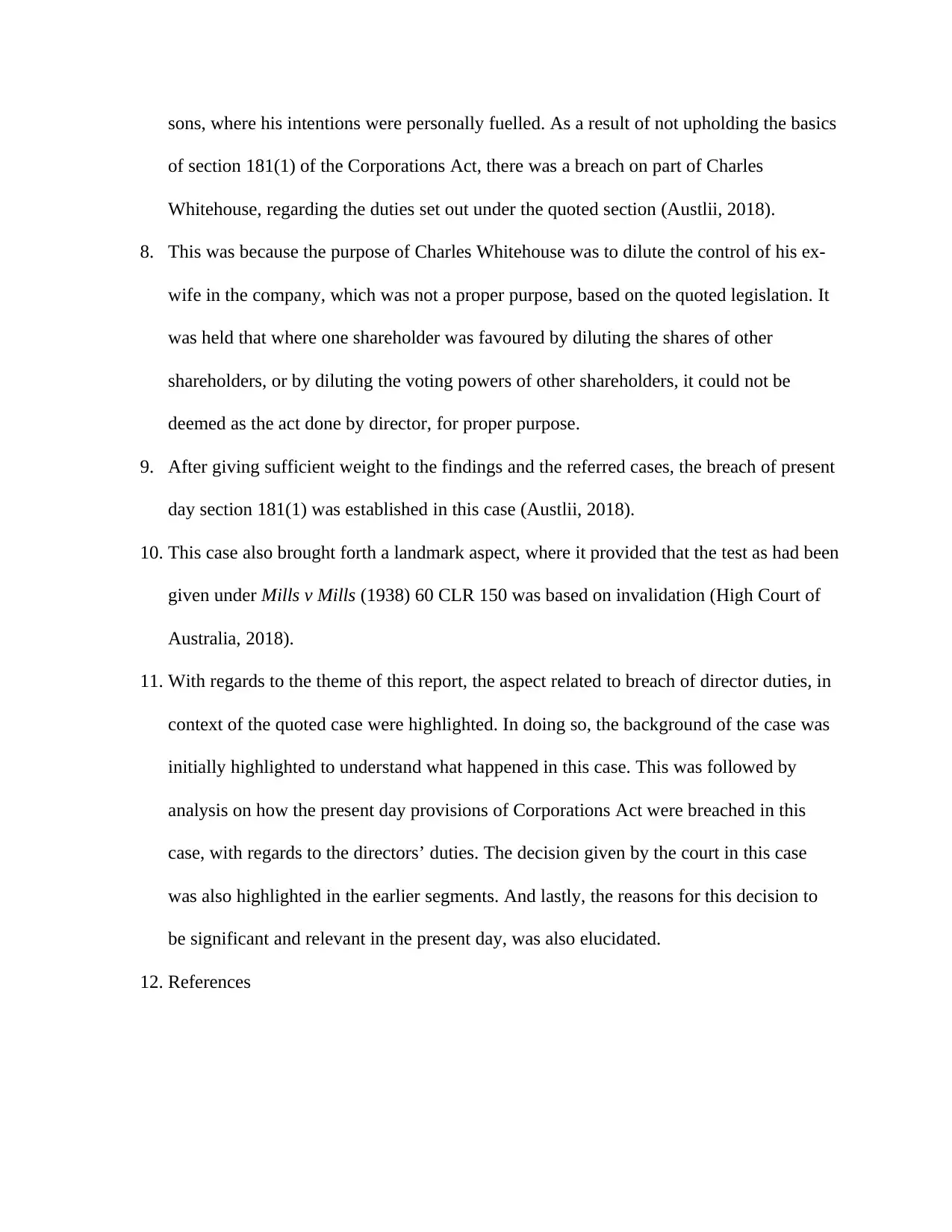Breach of Director Duties: A Case Study of Whitehouse v. Carlton Hotel
VerifiedAdded on 2023/06/12
|2
|691
|393
Case Study
AI Summary
This case study delves into the significant legal precedent set by Whitehouse v. Carlton Hotel Proprietary Limited, focusing on the breach of director's duties, specifically by Charles Whitehouse. The analysis highlights how Whitehouse's actions, issuing shares to his sons, were deemed a breach of fiduciary duty. The study uses the framework of the Corporations Act, particularly section 181(1), to demonstrate how Whitehouse failed to act in the best interest and for the proper purpose of Carlton Hotel. His intentions were aimed at diluting his ex-wife's control, thus violating the principles of the Act. The case underscores the importance of directors acting in good faith for the company's benefit, not personal gain, and references Mills v Mills to emphasize the invalidation test. This analysis is important in understanding the scope and implications of director's duties under corporate law.
1 out of 2






![Analysis of Whitehouse v Carlton Hotel Pty Ltd [1987] 162 CLR 285 Case](/_next/image/?url=https%3A%2F%2Fdesklib.com%2Fmedia%2Fimages%2Fdv%2F825a9ad3bb644f299e1b8934c38feb5f.jpg&w=256&q=75)

![[object Object]](/_next/static/media/star-bottom.7253800d.svg)